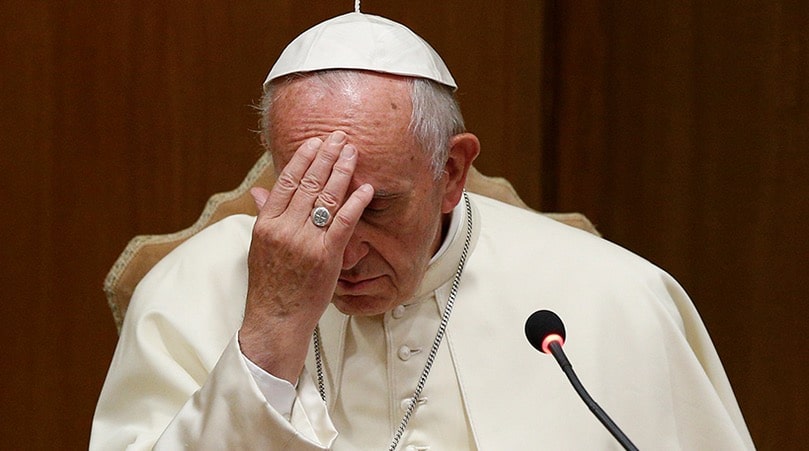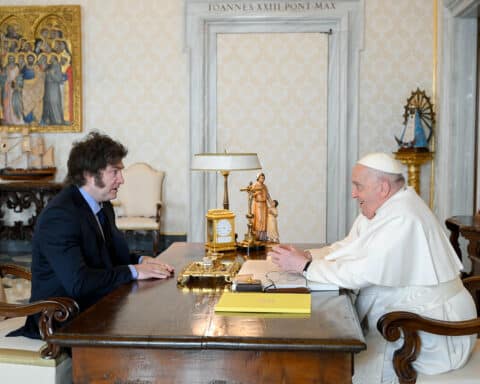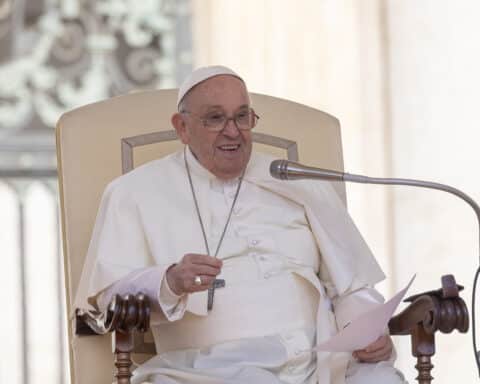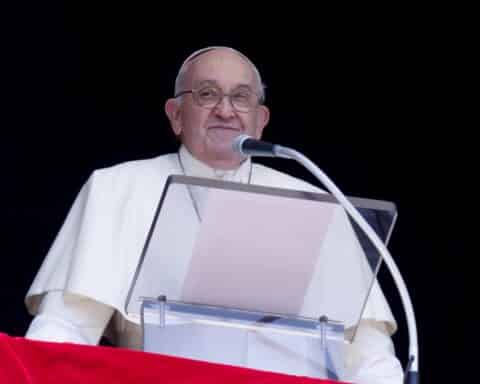The move by Pope Francis, announced Aug. 2, to change the Catechism of the Catholic Church to say that capital punishment is “inadmissible” in all cases prompted reactions that those who follow news in the Church will find predictable. As in so many other matters today, how one views this change in the Catechism may say more about that person’s view of secular and Church politics than it does about the substance of the change itself.
We must first note that the change that Pope Francis made to the Catechism has not, and cannot, rewrite the Natural Law that has underpinned our understanding of the relationship of people and states, and the rights and responsibilities contained therein. But he can and has changed the way in which the Church says that teaching should be applied in today’s circumstances. In this case, that means to reiterate more strongly than ever a conclusion reached by his predecessors, that — in the words of Pope St. John Paul II on his 1999 visit to St. Louis — the death penalty is “cruel and unnecessary.” Those remarks, reflected in John Paul’s encyclical Evangelium Vitae and in a revision of the same paragraph of the Catechism that Francis has now revised, reflect an understanding that, throughout most of the world in times of relative peace, it is possible to protect the public at large without putting a dangerous criminal to death. If it is not necessary to execute a criminal, John Paul II and his successors Benedict XVI and now Francis, proclaim lifetime incarceration more fittingly upholds the Church’s teaching on the dignity of the human person — a dignity that even the most hardened criminals have by virtue of their creation by God.
Writing in L’Osservatore Romano, Archbishop Rino Fisichella, head of the Pontifical Council for the Promotion of the New Evangelization, said, “A careful reading allows us to verify how the Church in recent decades has made real progress in comprehending the teaching on the dignity of the person.” He added, “In defending the abolition of the death penalty, one certainly does not forget the suffering of the victims involved, nor the injustice that has been perpetrated. Rather, it is expected that justice take its own decisive step, not out of rancor and vengeance, but out of a sense of responsibility beyond the present moment.”
The reaction to Francis’s move has been, as we noted, unfortunately predictable in some arenas. Some Catholics opposed to the death penalty are taking this opportunity to claim that Francis has changed a fundamental moral teaching — and they are doing so largely because they have placed politics above doctrine. At the same time, there are others who are opposing the shift in language because they see it as part of a “liberalization” of the Church under Pope Francis. The sweet spot is found in the proper understanding of the revision: in its underscoring of the dignity of human life from beginning to natural end.
At a fraught time in the Church and the world, Catholics cannot afford to let this change to the Catechism regarding the death penalty divide us — or, rather, split us even further apart. Rather, as children of God and followers of Jesus Christ, we should ask for the Holy Spirit for unity. Then united, we have a duty to proclaim the glorious truths with which we have been entrusted to carry out into the world: the Good News about mercy, about forgiveness and about the inherent, unassailable dignity of the human person.
OSV Editorial Board: Don Clemmer, Gretchen R. Crowe, Scott Richert, York Young





